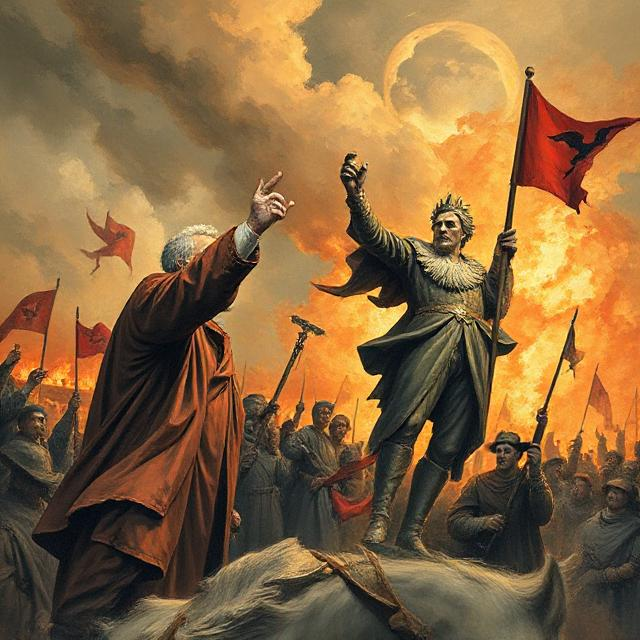
Delusional Leaders and Weakening People
Political leaders who see themselves as “always right” or “saviors” of their people often lose touch with reality. They start believing their own lies, ignoring experts, and dismissing anyone who disagrees with them.
This delusion is dangerous. When leaders think they cannot fail, they stop listening. They make big decisions—about wars, money, or health—based on pride, not facts. The result? Policies that hurt, not help, the people they claim to serve.
The worst impact is on ordinary lives. Imagine a leader who wastes money on useless projects to show off their power, while hospitals run out of medicine. Or one who starts fights with other countries to look “strong,” causing prices of food and fuel to rise.
Delusional leaders blame others for their mistakes, leaving problems unsolved. Families struggle to afford basics, students learn in broken schools, and workers lose jobs—all while the leader boasts about “success.”
Another problem is division. Leaders who think they are “heroes” often attack critics, calling them enemies. They turn groups against each other—rich vs. poor, one religion against another—to hide their failures.
People stop trusting each other. Fear and anger grow. Instead of uniting to fix issues, society fights over lies. This chaos makes life unstable and unsafe for everyone.
In a multipolar world—where power is spread among multiple states—delusional political leaders pose profound risks. When leaders inflate their self-importance, dismiss objective realities, or cling to irrational ideologies, they destabilize fragile international systems.
Such delusions exacerbate tensions, as leaders may overestimate their nation’s influence, disregard diplomatic norms, or pursue confrontational policies to feed their egos. For instance, a leader might provoke unnecessary conflicts with rival powers, misjudging their capacity to win alliances or public support.
This recklessness can trigger economic sanctions, trade disruptions, or even military clashes, harming citizens through inflation, scarcity, or displacement.
In a multipolar landscape, where cooperation is vital to manage crises like climate change or pandemics, delusional leaders undermine trust, fracture alliances, and paralyze collective action, leaving global challenges unaddressed.
The harm intensifies domestically. Delusional leaders often prioritize self-aggrandizement over governance, diverting resources to vanity projects or propaganda while neglecting public needs. Education, healthcare, and infrastructure crumble as funds are wasted on symbolic gestures or corrupt schemes.
Citizens endure worsening living standards, yet dissent is stifled through censorship or scapegoating of minorities. Over time, institutions meant to uphold democracy and rule of law erode, replaced by cults of personality or authoritarianism. In a multipolar world, such internal decay weakens nations, making them vulnerable to external exploitation or manipulation by rival powers.
Ultimately, delusional leadership not only impoverishes societies materially but also corrodes the social and moral frameworks essential for stability, leaving populations trapped in cycles of dysfunction and despair.
Hence, delusion kills hope. When leaders live in a bubble of self-praise, they ignore suffering. They claim “everything is perfect” while people suffer. Over time, citizens feel helpless. They stop believing change is possible. This apathy lets bad leaders stay in power longer, creating a cycle of neglect and despair.
In short, delusional leaders don’t just fail—they break trust, deepen suffering, and leave scars that take generations to heal. The solution? Hold them accountable. Demand honesty. And remember: no leader is a “god.” They are servants, not saviors.